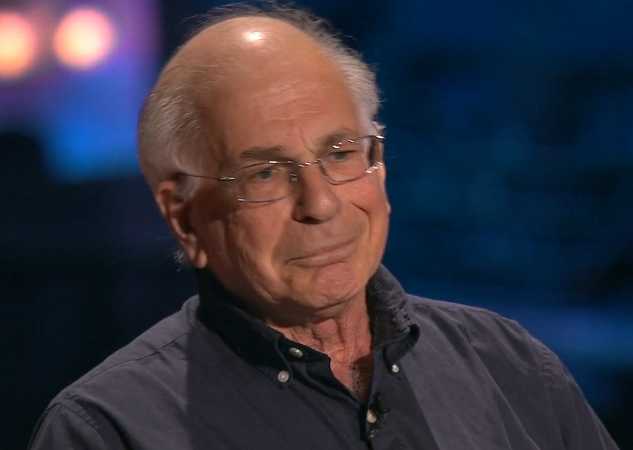What this is telling us, really,
這告訴我們,
is that we might be thinking of ourselves and of other people in terms of two selves.
我們?cè)谒伎甲约汉蛣e人時(shí),用了兩種自我。
There is an experiencing self,
第一種則為經(jīng)驗(yàn)自我,
who lives in the present and knows the present, is capable of re-living the past,
這種自我活在當(dāng)下,洞察當(dāng)下,同時(shí)也能回味過往,
but basically it has only the present.
但基本上他只屬于當(dāng)下。
It's the experiencing self that the doctor approaches --
一般醫(yī)生接觸的皆是經(jīng)驗(yàn)自我--
you know, when the doctor asks, "Does it hurt now when I touch you here?"
正如,當(dāng)醫(yī)生問你,“我碰你這里時(shí)會(huì)疼么?”

And then there is a remembering self,
另一個(gè)自我則是記憶自我,
and the remembering self is the one that keeps score, and maintains the story of our life,
他負(fù)責(zé)記錄生活,抒寫生活故事,
and it's the one that the doctor approaches in asking the question,
醫(yī)生要找他時(shí)會(huì)這么問,
"How have you been feeling lately?" or "How was your trip to Albania?" or something like that.
“最近感覺如何?”或“去阿爾巴尼亞好玩么?”等類似的問題。
Those are two very different entities, the experiencing self and the remembering self,
經(jīng)驗(yàn)自我和記憶自我是截然不同的,
and getting confused between them is part of the mess about the notion of happiness.
兩者的混淆是導(dǎo)致我們不懂快樂的部分原因。
Now, the remembering self is a storyteller.
記憶自我負(fù)責(zé)講述故事。
And that really starts with a basic response of our memories -- it starts immediately.
故事從記憶中直接擷取--即時(shí)上傳。
We don't only tell stories when we set out to tell stories.
并不是我們?cè)谥v我們要講的故事。
Our memory tells us stories, that is, what we get to keep from our experiences is a story.
是我們的記憶在講故事,它是我們從經(jīng)驗(yàn)中儲(chǔ)存下來的故事。
And let me begin with one example.
讓我用一個(gè)例子開始。











